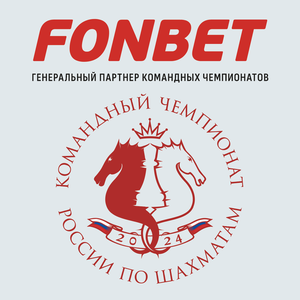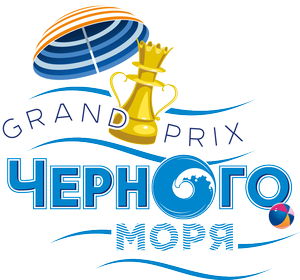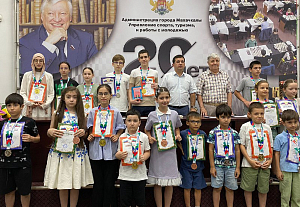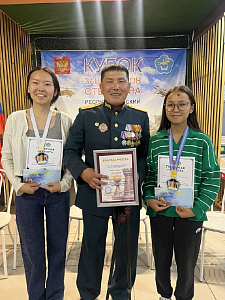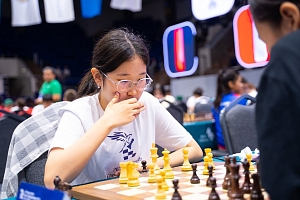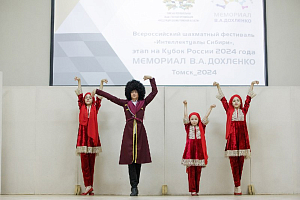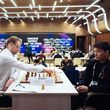20 August 2014
Sergei Rublevsky: We ought to help those who are truly keen
The head coach of the women’s National team, grandmaster Sergei Rublevsky speaks to Vladimir Barsky.
– Sergei, congratulations on the victory! Our girls now have three Olympiads to their credit, and this is the second Olympiad where you serve as head coach. How would you compare this one to the 2012 Olympiad in Istanbul?– In Istanbul, we took a lucky chance, and we all understood that. China misstepped again Kazakhstan, but we won 4-0 in the final round and were placed first according to a better tie-break score. The Chinese team are our strongest rivals, we prepare the most prior to facing them, however we still take into account the Ukrainian and Georgian teams. And in Tromso we were more or less in control. We defeated China in an encounter, going ahead of them as well as Ukraine by 2 points. Personally, I think it was a very confident victory, even though luck was on our side throughout certain matches.
– When did you begin your preparations for the Olympiad?
– Immediately after Istanbul I drew up a framework of our preparations for the following Olympiad, and I tended to stick to it. We conducted all of our scheduled training sessions, doing what we had wanted to. I basically worked with the people I was planning to work with.
Grandmaster Sergei Rublevsky
– However, it wasn’t clear up until the last minute whether or not Kateryna Lahno, the team’s new leader, could participate in Tromso...
– If not for the fabricated controversy, then there would have been no issues with her performing at the competition. Kateryna has lived in Russia for 18 months, and since then, she has expressed her wish to represent the Russian national team. We didn’t publicize that, as we hoped that we could agree on her transition with the Ukrainian Chess Federation, in a professional manner. This discussion began to take place over a year even with the previous RCF government in office. So the declaration of Ukraine’s coach Mikhail Brodsky that he heard nothing about Lahno’s transfer before the Olympiad should be considered as rubbish. Nor should they politicize the situation – Katya’s transition has no connection to the events in Ukraine; in fact, she had wanted to play for Russia way before the Maidan protests began. We never intended to entice anyone, but when she herself lives in Moscow and is inclined to represent the Russian team, then we have no right to turn down such a brilliant player. We had formally conducted the transition procedure, but it took a little longer given the protestations in the UCF.
– Have you known Lahno for a while?
– Yes, indeed a while. My friend Ruslan Scherbakov coached her for many years, contributing much to her progress, so she isn’t a stranger to me at all. I’m expecting you to ask whether or not Katya integrated well into the team. There weren’t any problems at all: she is well familiar with our girls, especially close with Alexandra Kosteniuk. Therefore, incorporating her into the team wasn’t more difficult than with Olga Girya not so long ago. Russians and Ukrainians share the same culture, so it was unproblematic.
– But isn't it a delicate process – adapting to a new group, representing a new team?
– Everything went exceptionally smoothly, there was no friction at any point.
– Was Kateryna called up for training only before the Olympiad?
– Yes, we wanted to meet and start working earlier, but the circumstances didn’t allow it. Then we decided to wait until the transition procedure is finalized, but we didn’t anticipate that it would be so delayed.
– What determined the boards order?
– When you have a strong and a balanced team, then there’s isn’t any point in scheming something extraordinary. The coaches and I arranged it according to the ratings, but we moved Valentina up a little, as she was in brilliant shape at the time. Thankfully, our players never complain about the coach’s decision about placements. Nor do they argue or complain about the coach’s orders throughout the match. In this tournament, I asked Natalia Pogonina twice to offer a draw during the game (which is now allowed according to the rules), in order to consolidate the team’s victory, and not once did I hear from her that she could have gained more in those games. The team’s interest overcome any personal ones, which is how things should be in the competitions amongst real professionals.
– Do all five girls play more or less evenly?
– We certainly try to. Everyone played the same number of games at the last Olympiad, all having two free days before the last round. We don’t divide them to regular players and reserves – they are all regulars! We make decisions according to the circumstances. For instance, if a player suffers a loss, then it would be difficult for her to play the next day, so we would offer a day off. We do try to lose as rarely as possible. In my opinion, Evgeny Najer, Alexander Riazantsev and I managed to strike a balance and apply equal pressure on our team members during training and throughout the game, according to the individual capacities of each player.
– How was the current tournament for the squad?
– There were some difficult moments, when the match’s result was hanging by a thread. We suffered a defeat only when the fate of the tournament had been decided. Given that China drew with Spain that day, our defeat had no effect on the tournament standings. We realized that if since we defeated China, we have excellent chances to claim gold.
– How did you manage to beat the Chinese team so convincingly?
– In general, Chinese players have conventional weaknesses, even though their national squad is on par with ours with their players, their rankings and their personal sporting achievements. I’m glad that we’ve learnt to face them in team tournaments. My first competition as the head coach was the friendly match against China. We may have lost, but we learnt very much. We got thrashed considerably, but the experience counts.
Their women’s team has struggled to win the Olympiad for a while, which is clearly bothering them – you can see it on their faces! So they appear more and more nervous towards the end of the tournament. They have an amazing captain – Hou Yifan. She is playing excellently, but her defeat against Kateryna Lahno completely transformed the Chinese team.
– Does their team rely a lot on Hou Yifan?
– Absolutely. She obtains a huge amount of points. On other board we are at least just as good. Yet, Hou Yifan is Hou Yifan, but Lahno easily beat her this time. Our girls are ardently preparing themselves for the Olympiad. Perhaps they are more suited to such a format of tournament, rather than the World and European championships. There are more rounds played, so we can adapt better. With terror I recall last year’s European championships in Warsaw. We only started playing properly in the final three rounds. Maybe our girls are more physically enduring, and play better under pressure.
– Maybe we can draw a parallel between the Warsaw and the Tromso competitions. In Warsaw, our team beat Ukraine in the final round, when they had already claimed the European championship. This time, Ukraine conquered us in the penultimate round, when we were almost guaranteed the Olympic gold. Is it a question of motivation?
– In our case, it’s more a question of exhaustion. Throughout the match, we shoudn’t have been losing, and if Olga Girya had made a couple of precise moves out of the opening, then the situation would have been different. However, we entirely deserved to lose. We can’t blame this on bad luck – other matches would have been different if not for some good fortune.
Of course, we weren’t at all at ease before our match against Ukraine. We didn’t know that it would all go smoothly and China would tie with Spain – we never anticipated such luck. Our girls were simply tired with their busy schedule. We really felt the exhaustion during the final round, but the Bulgarian team wasn’t as strong – they can’t keep calculating for four hours, like Kosteniuk and Gunina can.
– Before the match against Ukraine, did you feel any additional pressure given the current political situation in Ukraine?
– We weren’t subjected to any pressure. It was Ukraine that was, since they were behind by three points; even if they had won, they would have been contending only for the top three. What’s in it for us? We beat China, and furthermore we were ahead of them in case of a tie-break. We had played against every strong team, and we had excellent chances of claiming gold. Who could we have faced in that final round? If not Bulgaria, then perhaps Spain. We’re not afraid of those teams, and if we had to, we could even play for the maximum score. So we were calm before the match against Ukraine. After defeating China, we didn’t doubt winning for once. It wasn’t pleasant to lose, but nothing more.
– What were the living and playing conditions at the Olympiad?
– Starting from 1994, I only missed two Olympiads, but at every other I performed either as a player or as a coach. This one was perhaps the most modest of all. Maybe I was very easily impressed in 1994, but I don’t remember the details. It’s difficult to compare this tournament to those in Istanbul-2012, Khanty-Mansiysk-2010, Bled-2002. In Tromso, the conditions were truly spartan. Maybe there were reasons to criticize the organization of the last Olympiad, but I remember that they had a good, spacious game hall. Here, I felt claustrophobic. It seems that the Tromso Olympiad was organized on a tight budget.
The hotel rooms were quite small, but the living conditions were normal. As far as that is concerned, the RCF did all they could, but they couldn't exactly provide us with a different game hall. It was difficult to play in that room, we struggled to breathe at the corner of the hall, where our team was playing. What’s more to say? A player died in that room on the last day, quite possibly from asphyxiation.
– What did you do in your free time?
– This was taken care of by the RCF – they sent a doctor and a masseur with us. I had a coffee machine in my room, brought all the way from Moscow. Everything was provided to recover our strength. The weather was also good according to the local standards.
– What are your current plans for the national team?
– I would like to arrange another team meeting. In the near future, I will be devising the schedule of preparations for the upcoming competitions.
– Aren’t the team tournaments taking place on too rare a basis?
– But they are so energy consuming! There will be both the World and the European Championship in 2015.
The girls all have a fairly busy schedule. It isn’t appropriate to make them play some friendly match. Nor should we play a second squad, because we can be beaten considerably, which would serve as a heavy psychological crash in the future.
– Don’t you think that one should pay more attention to the leading female players during their most crucial individual competitions? For example, during the World Cup 2012, China sent an entire delegations of coaches, whom any Chinese player could ask for help. On the other hand, RCF didn’t send a single coach, not even to mention the doctors and the masseurs?
– We can think about that, but there are some delicate points in that matter. If we wanted a Russian woman to claim the World championship, then we ought to help our girls throughout the World Cup, from start to finish. However, what is there to do when one girl has her own coach, but the other one doesn’t? What is there to do when they are drawn to play each other in a tournament? There are many controversial question to ask.
– Do you feel that the level of women’s chess has risen in our country?
– I carefully watched the recent Russian championship, and in my opinion, I do not agree with that. There haven’t been any new contenders for a spot in the national team in the last two years. I do see some female players with considerable potential, but they are only 12 years of age. Amongst 16-17 year olds, Aleksandra Goryachkina is miles ahead of her peers. Then, in theory, it’s Alexandra Obolentseva, but she is only 12 years old.
– Why is that the case?
– So things are, there’s a gap in our chess field. It’s a different situation amongst the men – there are plenty of talented youth players, we can highlight Esipenko as one amongst the juniors. Amongst the female players, we see the same contenders every year to qualify for the Superfinal. At some point, the situation can worsen – the current team members will retire, but there will be no one to replace them. I raised this question with Mark Glukhovsky that we ought to lower the entry requirements to the Premier League from 2380 Elo rating down to 2350. Otherwise we see a group of female players who have played in Superfinals, but are left out of the Premier League. It seems that there is nobody to replace them at the moment.
We have many World and European champions in their age categories who have had a delayed transition into ‘adult’ chess, or never entered the system at all. One can have several championship titles in the junior category, but never reach the standard of the national team. The rivals remain the same throughout the years, be it at the age of 8, 12 or 16, you know. And when we see an outstanding player like Goryachkina, then she doesn’t play in her age group – she competes in older age groups or with the adults.
We need a more sophisticated system of preparing the reserves for the national team. There is a lot to think about here. I understand the problem here, but I can’t see an immediate means of its resolving. The opportunity to train with such quality coaches, like those in Russia, appears nowhere else. Evidently, we must take advantage of it. We just need to understand whom we should help, and by what means, so that they would be just as keen and sparky as our wonderful girls – now Olympic champions!









